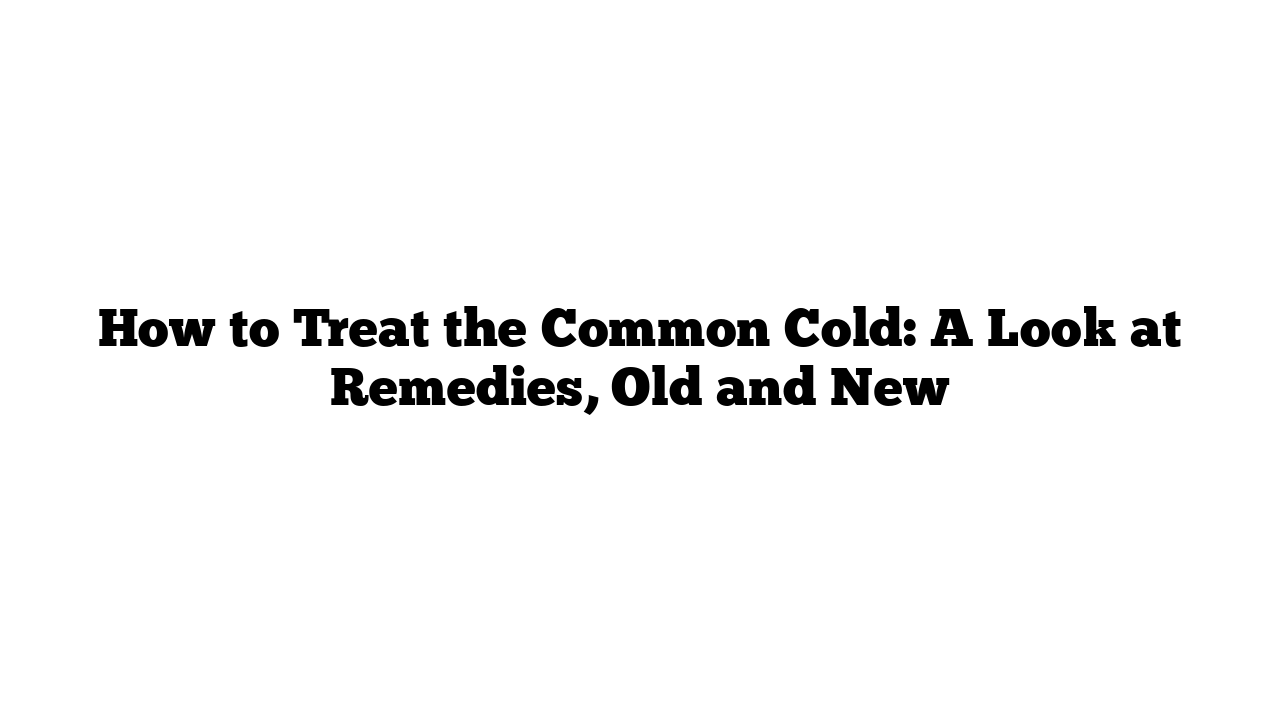Throughout history, humans have tried many creative methods to treat the common cold. In ancient Egypt, doctors used incantations and even breast milk as remedies. In 18th-century Europe, bloodletting was popular. And in 1924, President Calvin Coolidge made headlines for inhaling poisonous chlorine gas to treat his cold—an ill-advised choice! These historical treatments, though often strange, show how determined people have always been to find relief from the common cold.
But today, with pharmacy shelves packed with cold remedies, the question remains: What’s the best way to treat a cold? Let’s break down what works and what doesn’t when you’re fighting off that stuffy nose and annoying cough.
How Do Cold Remedies Work?
While colds are caused by a variety of viruses, it’s not actually the virus itself that makes you feel sick. Instead, the unpleasant symptoms are caused by your body’s natural defense mechanisms. Here’s what happens:
- Immune response: When a virus invades, your white blood cells release proteins called cytokines. These proteins signal other immune cells to join the fight.
- Inflammation: Blood vessels widen to help more immune cells reach the infected area, which causes inflammation and a blocked, stuffy nose.
- Mucus production: Your body creates more mucus to trap and expel the virus. Unfortunately, this can irritate your airways, leading to coughing and a sore throat.
Since cold viruses are so varied, pharmacy products are not designed to attack the virus itself. Instead, they aim to ease symptoms like congestion, coughing, and sneezing.
Common Cold Remedies: Which One Should You Choose?
Pharmacy products often combine a pain reliever with one or more active ingredients designed to relieve specific symptoms. Here’s a breakdown of the most common cold-fighting ingredients and how they work:
1. Nasal Decongestants
If you’re dealing with a stuffy nose, nasal decongestants like pseudoephedrine can help. These medications reduce blood flow to the vessels in your nasal passages, making it easier to breathe. Pseudoephedrine works by promoting the release of norepinephrine, a chemical that helps clear up nasal congestion.
2. Cough Suppressants
Cough suppressants, like dextromethorphan, target the brain regions responsible for coughing. While we don’t fully understand how they work, they interact with brain receptors to reduce the urge to cough. However, not all coughing is bad—coughing can help clear mucus from your airways. So, it’s important to use cough suppressants wisely and as directed.
3. Expectorants
If your cough is productive (meaning you’re coughing up mucus), expectorants like guaifenesin can help. These medications work by increasing fluid secretions in the respiratory tract, making mucus less sticky and easier to expel. This can ease congestion and help clear your airways.
4. Antihistamines
Antihistamines, such as diphenhydramine (found in Benadryl), are often used to dry up a runny nose. While histamines are more commonly associated with allergies, some antihistamines can help with cold symptoms by reducing mucus production. Be cautious, though—many antihistamines can cause drowsiness.
Do These Remedies Speed Up Recovery?
One important thing to remember is that these treatments don’t attack the cold virus itself—they only help manage symptoms. So, while they may make you feel more comfortable, it’s unclear if they actually shorten the duration of your illness. Many of these ingredients were introduced decades ago, and research into their effectiveness is ongoing.
What About Home Remedies?
Some people swear by home remedies like zinc or vitamin C. The research on zinc is inconclusive, and while vitamin C has many health benefits, its ability to fight colds is likely overhyped. However, there is some evidence that honey can help soothe a cough and might even shorten your illness by a day or two .
Navigating Cold Treatments
In the end, choosing the right remedy for your cold depends on your symptoms. Nasal decongestants are great if you’re dealing with congestion, while expectorants can help if you need to clear out mucus. Understanding how these ingredients work can help you make informed choices about which products to use.
While we may not have a perfect cure for the common cold yet, being informed can certainly help you feel better faster.
References:
